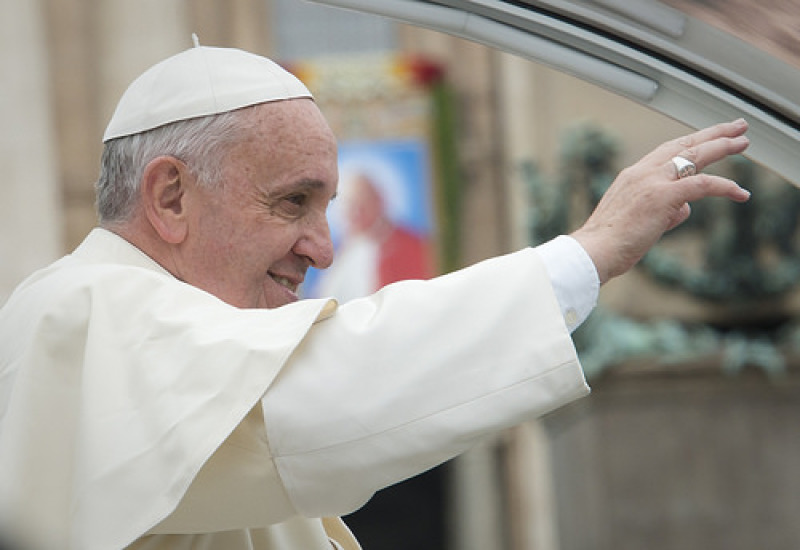
During his second day in Turkey, Pope Francis visited the Blue Mosque and joined Rahmi Yaran, the Grand Mufti of Istanbul to pray, according to NBC News.
While inside the mosque, the Pope faced east towards Mecca while Yaran led a two-minute Muslim prayer.
After praying, the two walked inside the massive mosque to admire its architectural design. The two religious leaders then discussed the urgent need for the Muslim and Christian communities to establish a deep understanding of their respective beliefs.
After touring the mosque, Pope Francis headed to Istanbul's Hagia Sophia. Originally built as an Orthodox cathedral, the facility was converted into mosque during the time of the Ottoman Turks, BBC reported.
Today, the Hagia Sophia serves as a historical museum.
Pope Francis's visit to the mosque and museum is part of his three-day visit in Turkey.
During his first day on Nov. 28, he made an important speech to address the ongoing conflict in Turkey's neighboring countries.
For weeks, the militant group ISIS has been terrorizing Syria and Iraq as it expands its operations. The conflict forced about 1.6 million refugees to leave their homes and flee to Turkey.
In response, governments of various nations joined forces to conduct airstrikes on known ISIS territories. Although these operations were effective as it slowed down the movement of the group, the Pope noted that a peaceful solution must be pursued, according to the Telegraph.
"In reaffirming that it is licit, while always respecting international law, to stop an unjust aggressor, I wish to reiterate, moreover, that the problem cannot be solved solely through a military response," Pope Francis said in his speech.
The Pope then condemned the religious and ethnic persecution being experienced by victims of the militant organization.
"Particular concern, arises from the fact that, owing mainly to an extremist and fundamentalist group, entire communities - especially, though not exclusively, Christians and Yazidis - have suffered and continued to suffer barbaric violence simply because of their ethnic and religious identity," he said.



















